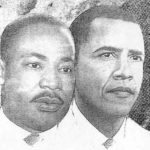"Holding onto anger is like grasping a hot coal with the intent of throwing it at someone else; you are the one who gets burned" -Buddha Namaste my … [Read more...]
Hope….
Namaste my brothas….I hope this article finds you well and in good spirits. I have been feeling hopeful of late- and it feels good! It feels like it … [Read more...]
Healing Our Wounds
Namaste, my brothers. I hope today finds you well and in good spirits. I wanted to write about healing, we must also talk about woundings, for the … [Read more...]
Overall Health And Wellness
“If you have come to help me you’r are wasting your time…but if you have come because you liberation is bound up with mine, then let us work … [Read more...]
